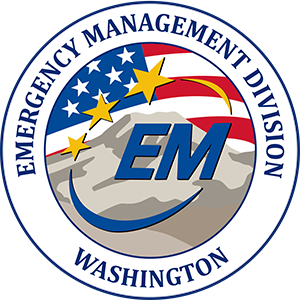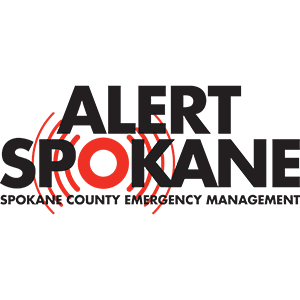Public Health Emergency Preparedness & Response Program
Before an Emergency
Make a plan. Build a kit. Stay informed.
Household Preparedness
Emergencies can happen quickly and without warning. During an emergency, you may not have access to water, food, or electricity for several days. You may be asked to evacuate your home. Communicating with loved ones may be difficult if the power is out or cellular systems are damaged or overloaded. Disasters can also have a big impact on the supplies and services we use every day. Being prepared for any type of emergency with a plan, supplies and information will help you cope with the challenges and stay safe.
How to Prepare for Emergencies
For helpful tips on preparedness planning, see this fact sheet on how to prepare for emergencies.
Create a Household Emergency Plan
More than a collection of names, phone numbers, and street addresses, a household emergency plan is an instruction manual for how to stay healthy, stay informed, and stay in contact during an emergency. Because an emergency plan affects everyone in your household, the whole household should be involved in making and practicing the plan.
Important Contacts
Write down the phone numbers of family members and important contacts. Find phone numbers for your physician, pediatrician, pharmacist, insurance company, and veterinarian. Other important numbers you should know include:
- Disaster Distress Helpline: 800.985.5990 or text TalkWithUs to 66746
- Disaster-related evacuations, shelters, resources and referrals: 2-1-1
- Poison Control Center: 800.222.1222
- Animal Poison Control Helpline: 888.426.4435
Out-of-Town Contact
Ask a friend or relative who lives outside of the immediate area to be your family’s Out-of-Town Contact. Use texts, email or social media if phone calls are not going through.
Shelter-in-Place Location
Identify a shelter-in-place location inside your home. This may be a basement or a bathroom. Also identify an emergency meeting location outside your home where your family can reunite in an emergency.
School Emergency Communication and Family Reunification
Ask your child’s school or daycare about their emergency communication and family reunification plans.
Learn more about Keeping Children Safe in Disasters
Keep Your Plan Up to Date
Update your emergency plan whenever your family moves, your child changes schools, you have a new family member, or your family experiences another significant life event.
Build an Emergency Kit

Collect a three-day supply of food and water.
- Choose non-perishable items that are easy to prepare, like granola or protein bars, trail mix, dry meats, nut butter, crackers, powdered milk and canned meats, fruits, vegetables and soups.
- Keep a non-electric can opener and other cooking tools and utensils.
- Store a three-day supply of drinking water – 3 gallons of water for each person in your household.

Gather emergency supplies.
- Flashlights and extra batteries
- Matches
- Radio (battery-powered, solar or hand crank)
- Cell phone chargers
- First aid supplies
- Blankets
- Medicine

- Personal care items (soap, toothbrush and toothpaste, glasses or contacts)
- Child care items (diapers and formula)

- Copies of important documents (birth certificates, passports, vaccination records, insurance cards, and a family picture)
- Pet supplies (food, water, leashes, bowls, waste bags and medication)
- Contact lists (on paper)
- Activities (cards or games)
- Cash
- Maps

Store these items in a backpack or easy-to-carry container in case you must evacuate. It’s also a good idea to have emergency kits in multiple places — at home, at work, and in your vehicles. You never know where you might be when a disaster strikes.
Stay Informed
Register for Alert Spokane to receive emergency notifications for residents and businesses in Spokane County.
Some useful websites and applications for emergency information are
- National Weather Service Spokane
- FEMA Mobile App
- American Red Cross Mobile App
(Or text “GETEMERGENCY” to 90999 to download.)
If you use social media, find and follow feeds from your local fire district, local news channels, and the National Weather Service for your area.
Be Ready for Power Outages
Make sure your utility providers have your current contact information. Know where to find power outage information, or if your electric utility offers power outage text notifications, make sure to sign up. Here is a list of local providers’ signup information:
Avista
Sign up for alerts on the Alert Preferences section of your online account. For more information, visit Mobile app and text alerts or call 800.227.9187 if you need assistance with signing up.
City of Cheney Light Department
Sign up at Notify Me alert center to receive power outage alerts by email or text.
Inland Power
Sign up for outage notifications on SmartHub. You can also find up-to-date outage information on the Outages & Emergencies page.
Kootenai Electric Cooperative
Visit Outage Center page for outage information and to sign up for SmartHub text or email notifications.
Modern Electric and Water Company
Call 509.928.4540 during business hours or 509.926.9800 after hours. You can also check the Modern Electric Facebook page for updates.
Vera Water and Power
Find up-to-date outage information on the Outages page and on social media:
Free Smoke Alarms
Contact your local fire department or the American Red Cross if you cannot afford a smoke alarm or cannot install one yourself.
- Spokane Fire Department's Smoke Alarm Installation Program
(You may also call 509.625.7149 to request smoke alarms.) - American Redcross Northwest Region
- Find Your Local Fire District

Washington State Emergency Management Division
Learn about the potential threats and hazards facing Washington citizens and communities.


